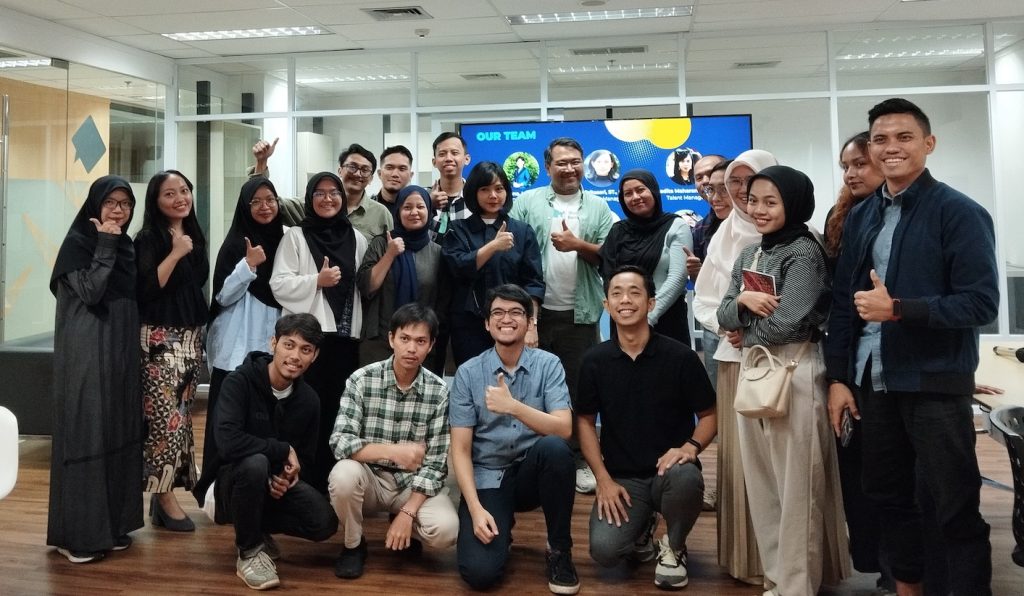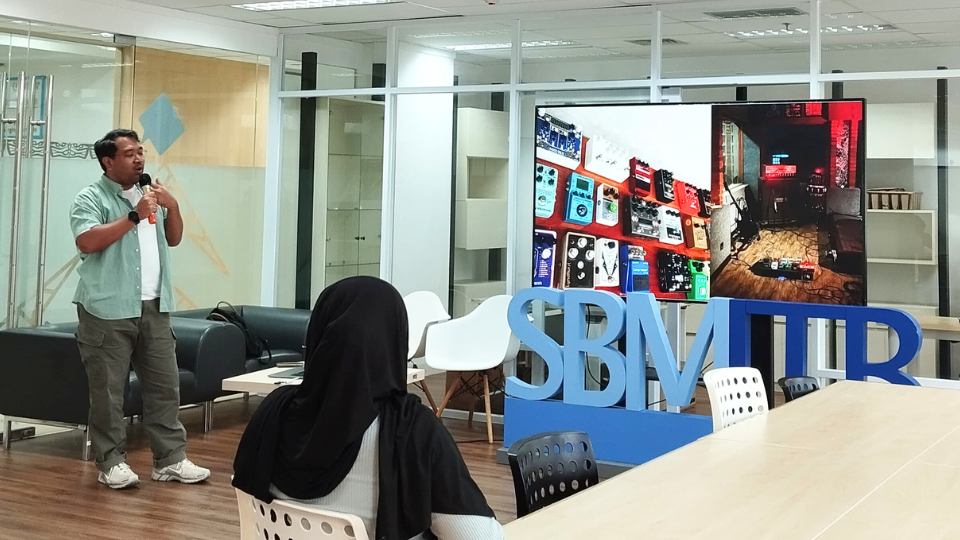The community plays a crucial role in determining consumer needs and preferences. Involving the community can help identify potential consumers who are a product’s target market.
Kuassa‘s remarkable journey is a testament to the transformative power of community involvement in product development and market penetration. Founded in Bandung in 2009 by a group of musicians driven by a shared passion for music, Kuassa has evolved into a leading provider of high-quality audio plug-ins, including virtual studio technology (VST), audio units, rack extensions, digital guitar amps, and mixing-mastering effects plug-in software.
“We, together with Dina Dellyana, SBM ITB teacher and musician at that time, thought that if we sold the equipment and profited from the licenses, we would become rich. But it’s not that easy,” said Grahadea Kusuf, Co-Founder of Kuassa and Director of Start-Up Bandung, during The Greater Hub mentoring session on Friday (3/5) at the SBM ITB.
In the mentoring session, Kusuf discussed the transformative potential of community-based business initiatives in the start-up ecosystem. He reflected on Kuassa’s beginnings, initially seen as a way for the band to earn income from licensing audio equipment. Over time, Kuassa built relationships with influencers and stakeholders by leveraging their communities.
As Kuassa’s vision expanded, the company began serving musicians and producers worldwide. Kuassa has become popular among indie musicians, many of whom are “bedroom musicians.” Notable Indonesian music groups, producers, and singers, such as Nadin Amizah, Reality Club, Hindia, and Feast, are also Kuassa users, forming part of the broader music community.
Kuassa’s journey, like any other start-up, has been marked by challenges. However, the company has demonstrated remarkable resilience in navigating the dynamic landscape of the start-up world. From the typical growing pains to the unprecedented challenges posed by the COVID-19 crisis, Kuassa has weathered storms by harnessing the power of the music community.
Kusuf emphasized the importance of aligning start-up ambitions with community dynamics. Entrepreneurs can chart a path for long-term growth and market relevance by applying concepts such as TAM, SAM, and SOM (Total Available Market, Served Available Market, and Serviceable Obtainable Market). According to Kusuf, understanding the market is crucial.
“Investors will look at the growth potential, so companies need to benchmark existing companies, understand how big the growth is, and how long it will take,” said Kusuf.
The success stories of Bandung’s start-up environment, including Evermos, Eiger, and e-Fishery, are not just about economic prosperity. They represent the spirit of community-based innovation, leveraging local talent and resources to achieve a global impact. These initiatives are a source of pride and optimism for the local community, showcasing the potential of community involvement in business development.





